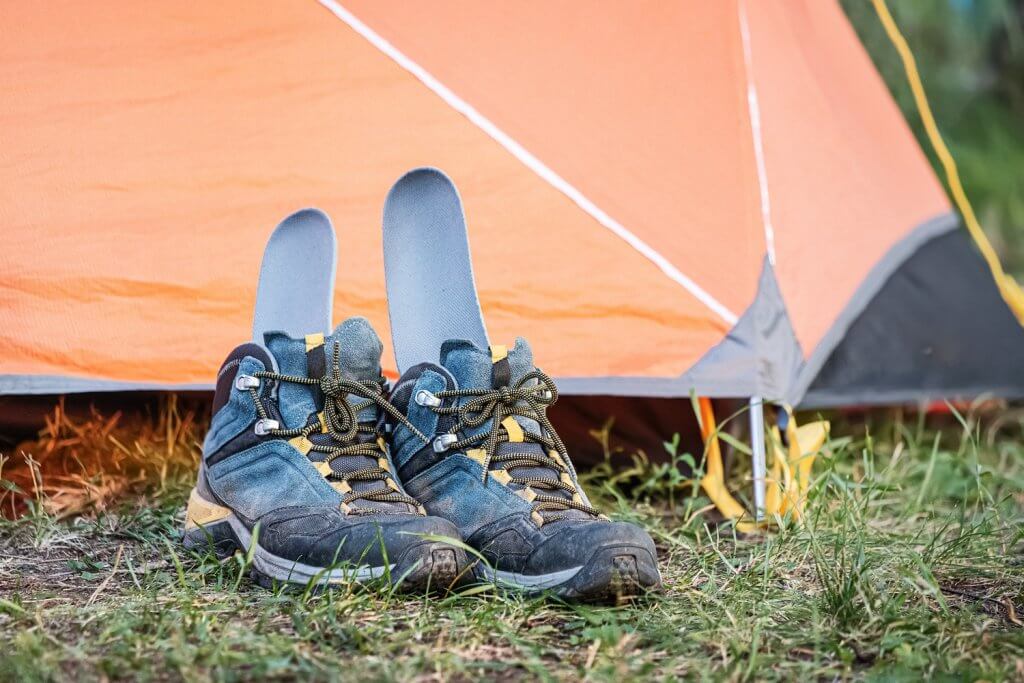1. Plantar Fasciitis
Plantar fasciitis is one of the most common causes of heel pain, affecting millions of people each year. This condition occurs when the thick band of tissue that supports the arch of your foot becomes inflamed or irritated.
Custom orthotics help plantar fasciitis by providing crucial arch support and distributing pressure more evenly across the foot. They reduce the strain on the plantar fascia, especially during the first steps of the morning when pain is typically worst. With consistent use, many patients find relief within just a few weeks.
The key is getting orthotics that provide the right amount of arch support for your specific foot type and condition severity.
2. Flat Feet (Fallen Arches)
People with flat feet have little to no arch in their feet, which can cause the entire sole to touch the ground when standing. This condition can lead to pain and fatigue throughout the foot, ankle, and even up into the legs and back.
Custom orthotics for flat feet provide the arch support that your feet naturally lack. They help restore proper foot mechanics, reduce overpronation (excessive inward rolling of the foot), and distribute weight more evenly. This support can reduce pain and prevent the progression of related problems like bunions or hammertoes, while also reducing abnormal forces that can affect the knees and other joints up the kinetic chain.
The orthotics essentially create an artificial arch, giving your feet the support they need to function properly.
3. High Arches (Cavus Foot)
While flat feet get a lot of attention, having excessively high arches can also cause problems. High arches can create pressure points, reduce the foot’s natural shock absorption, and lead to instability.
People with high arches often experience pain in the ball of the foot, heel pain, and are more prone to ankle sprains due to instability. Custom orthotics help by providing cushioning in key pressure areas and adding stability to prevent excessive supination (outward rolling of the foot).
The orthotics fill in the gap created by the high arch and distribute pressure more evenly, reducing pain and improving balance.
4. Bunions
A bunion is a bony bump that forms at the base of the big toe, causing the toe to angle toward the other toes. While severe bunions often require surgical correction, many cases can be managed effectively with conservative treatment including custom orthotics.
Orthotics help those suffering with bunions by redistributing pressure away from the affected joint and controlling foot motion that can worsen the condition. They can slow the progression of the bunion and provide pain relief, especially when combined with proper footwear.
While orthotics won’t reverse an existing bunion, they can prevent it from getting worse and make daily activities more comfortable.
5. Diabetic Foot Complications
People with diabetes are at higher risk for foot complications due to reduced sensation and circulation. Custom orthotics play a crucial role in diabetic foot care by preventing pressure sores, ulcers, and other serious complications.
Accommodative orthotics made from soft materials provide essential cushioning and help distribute pressure evenly across the foot. They can prevent hot spots that might develop into ulcers and provide protection for areas of the foot that are particularly vulnerable.
For diabetic patients, orthotics aren’t just about comfort — they’re an important part of preventing serious complications that could lead to infection or even amputation.
Beyond These Five Conditions
Custom orthotics can also help with many other conditions including Morton’s neuroma, metatarsalgia, posterior tibial tendon dysfunction, and various sports-related injuries. They’re also valuable for people who spend long hours on their feet or participate in high-impact activities, and studies show they can benefit knee health by reducing abnormal joint loading forces.
Getting the Right Treatment
The key to successful orthotic treatment is proper diagnosis and prescription by a qualified podiatrist. What works for one condition may not be appropriate for another, which is why custom orthotics are more effective than generic insoles.
If you’re dealing with any of these conditions or other foot pain that’s affecting your quality of life, a consultation can help determine whether custom orthotics are right for you. The sooner you address foot problems, the better your outcomes are likely to be.
Don’t let foot pain control your life. Contact Proliance Northwest Foot and Ankle Specialists at (425) 337-7000 or request an appointment online to learn more about how custom orthotics might help with your specific condition.








